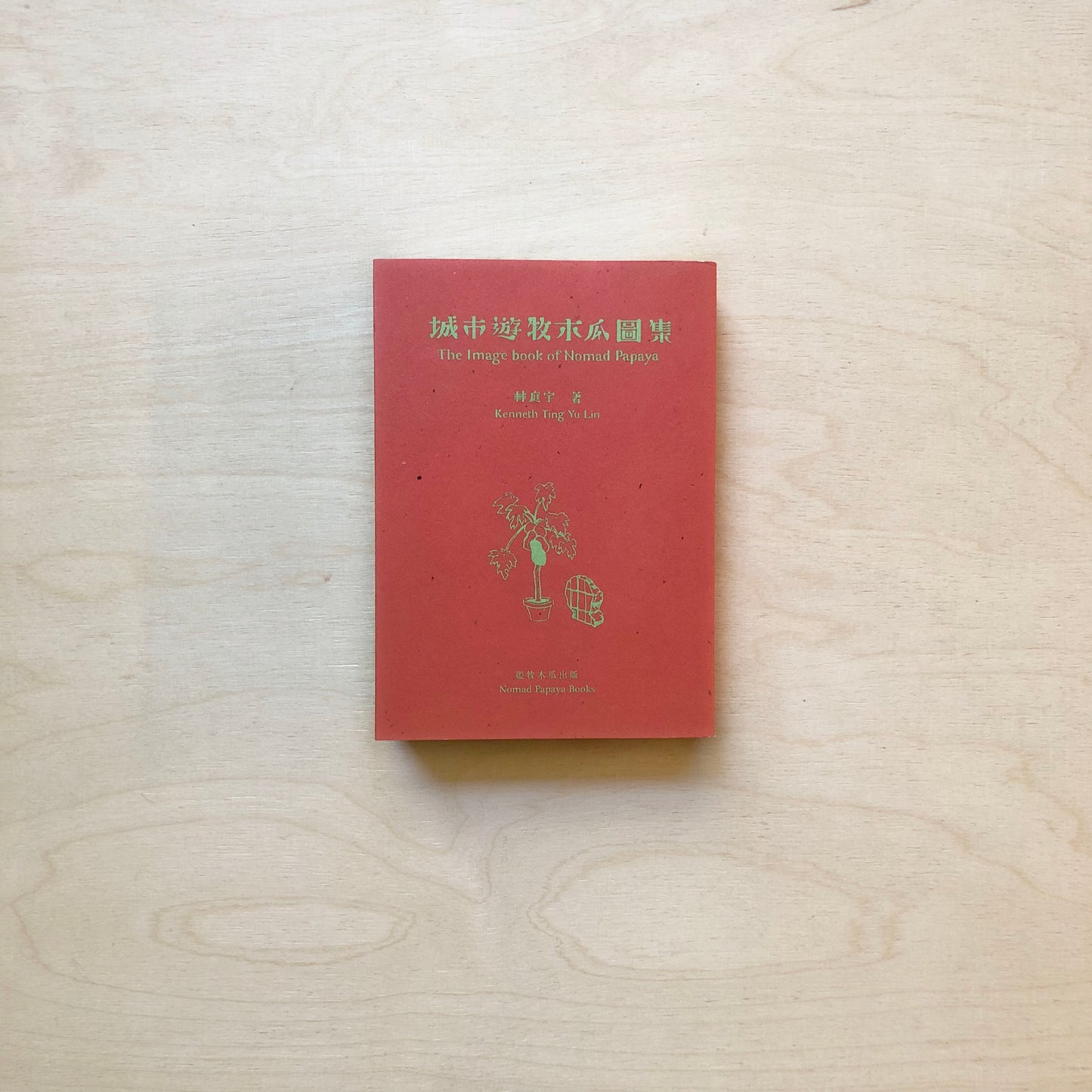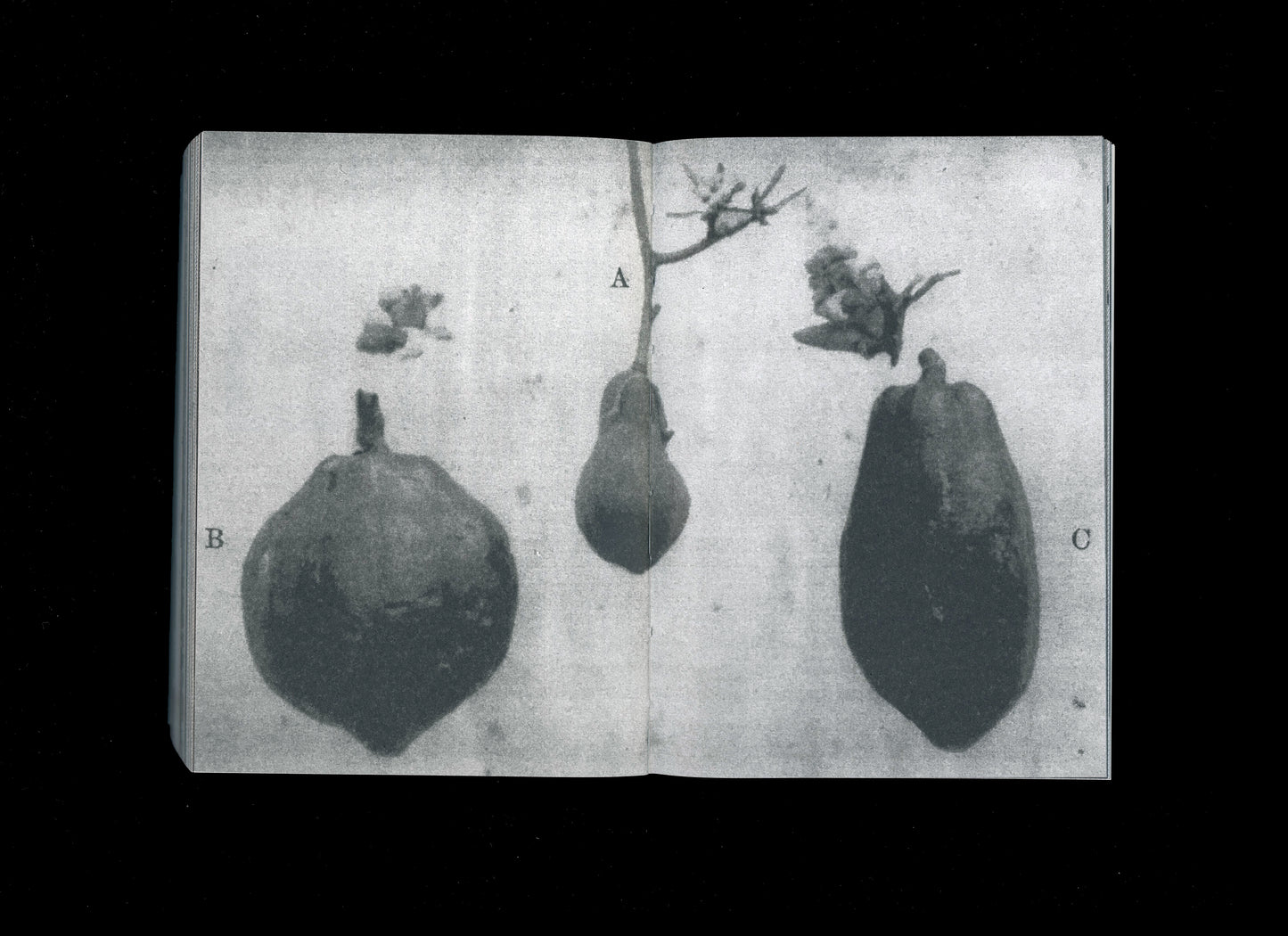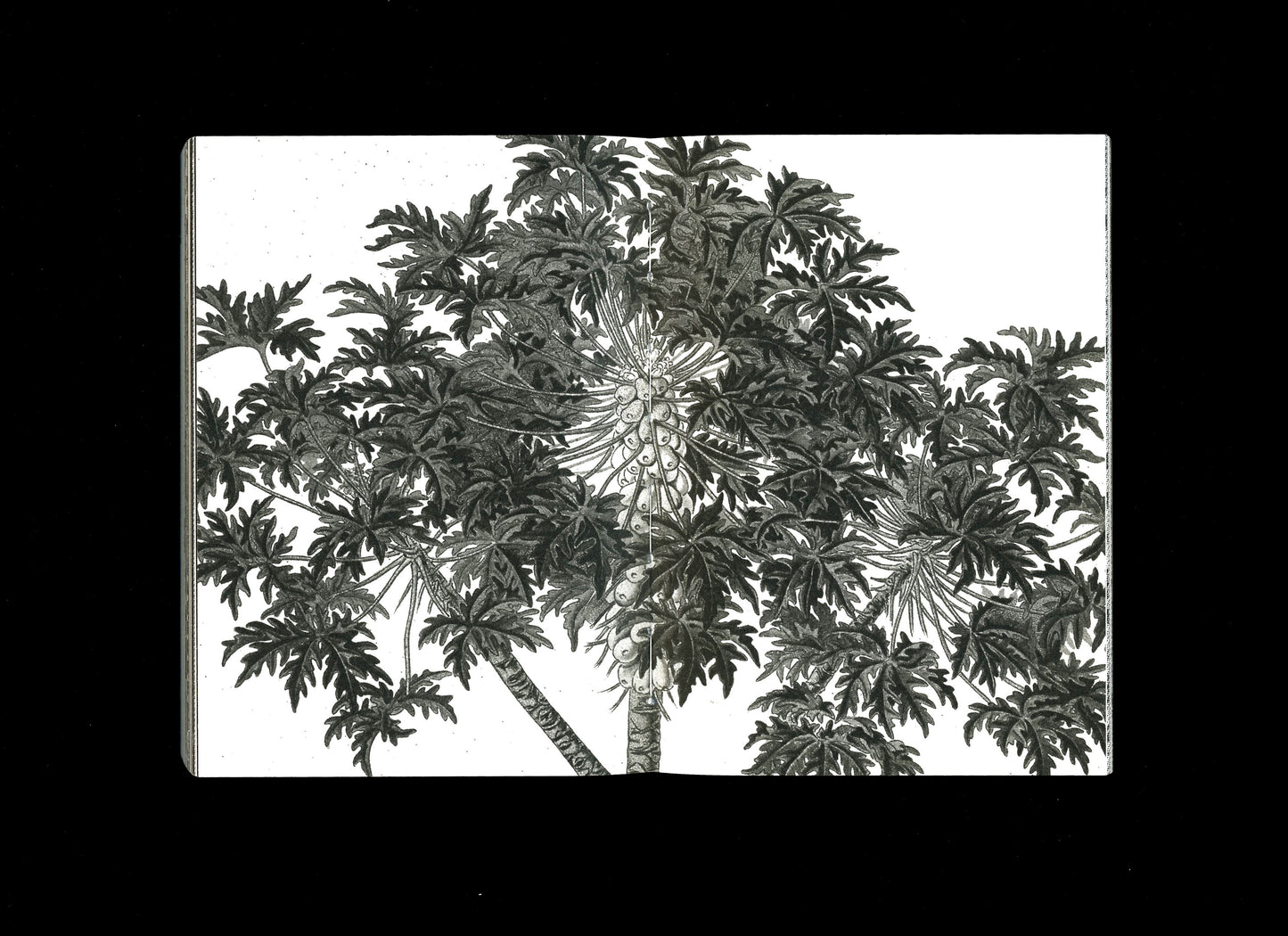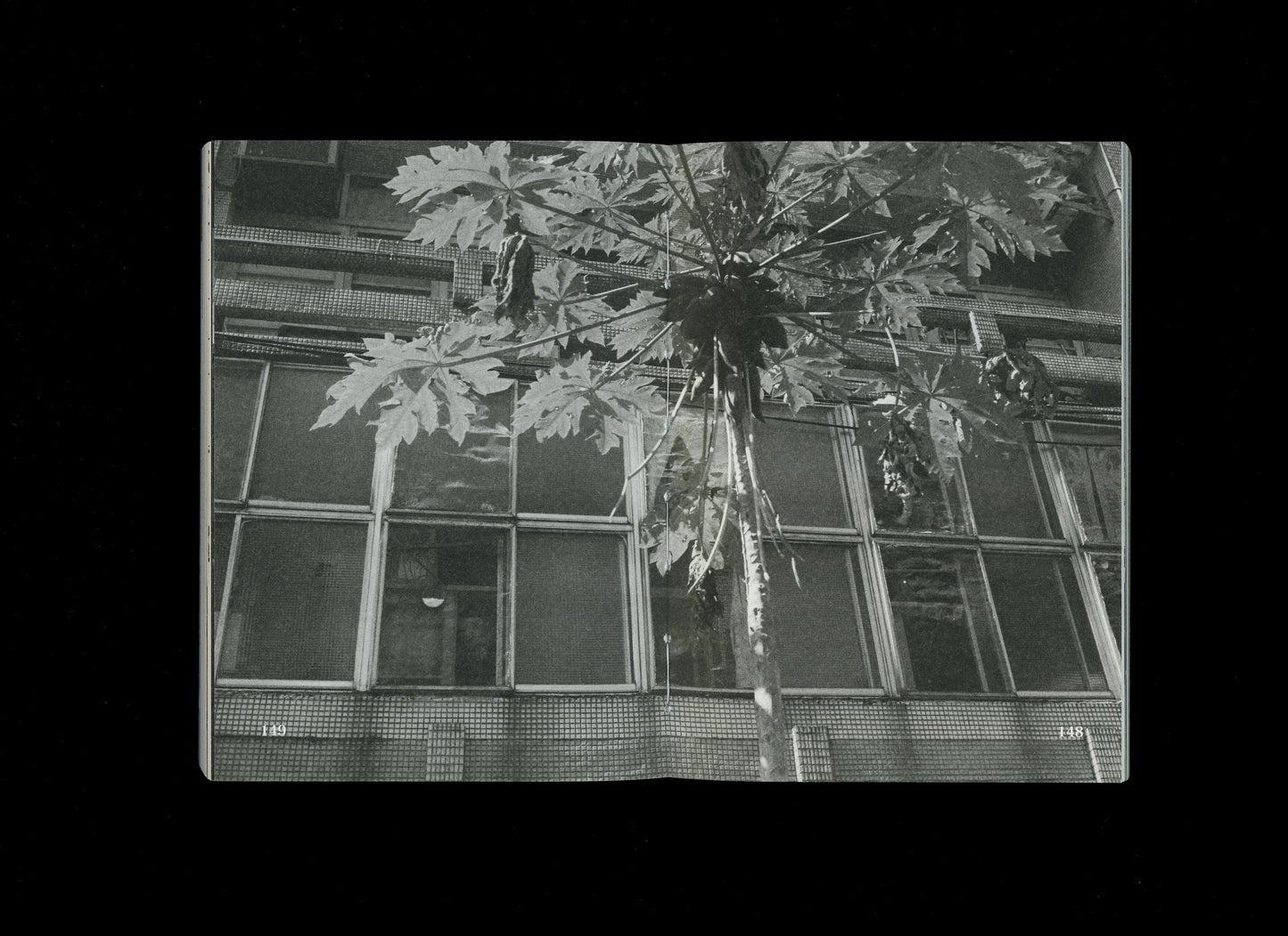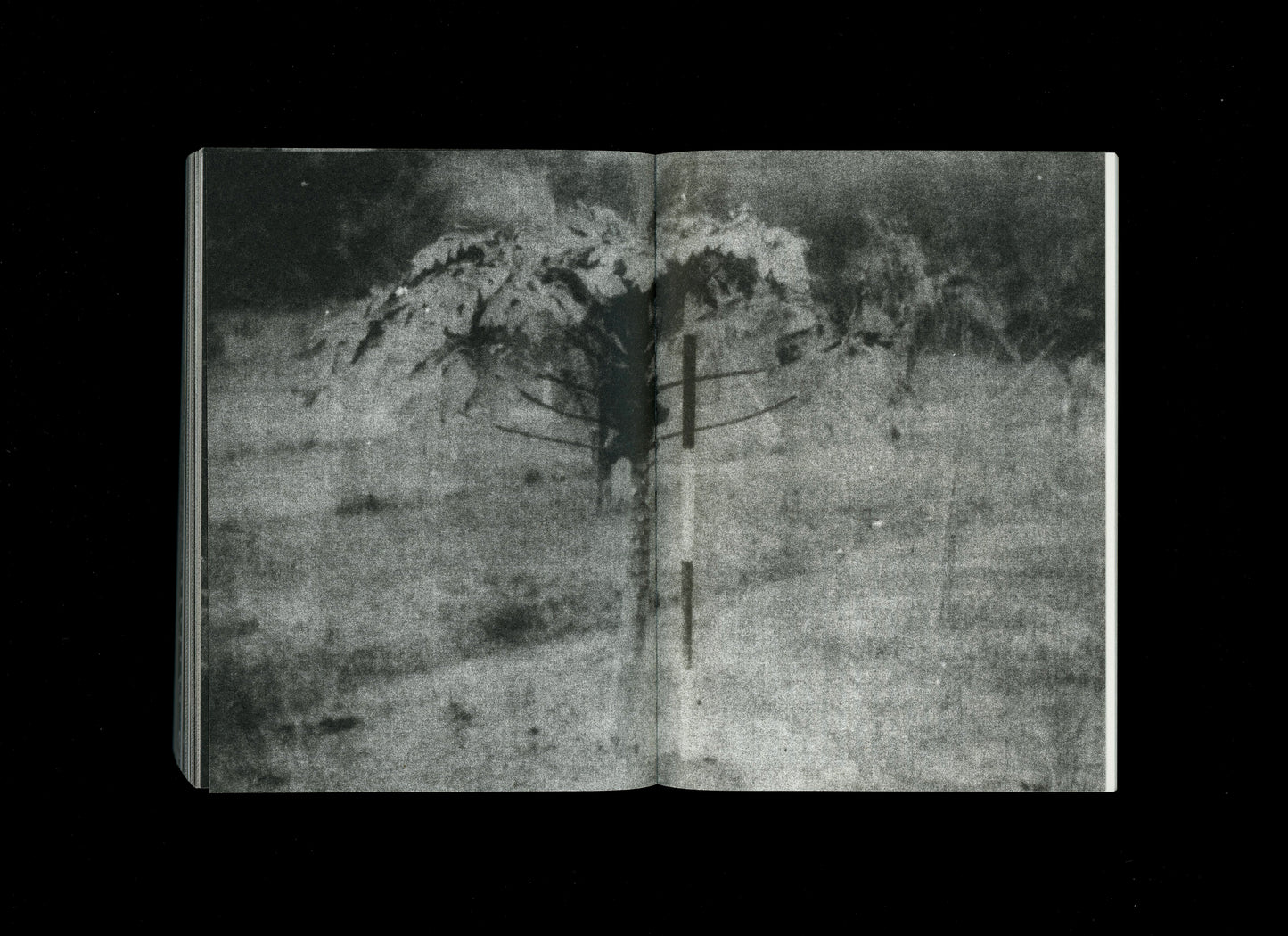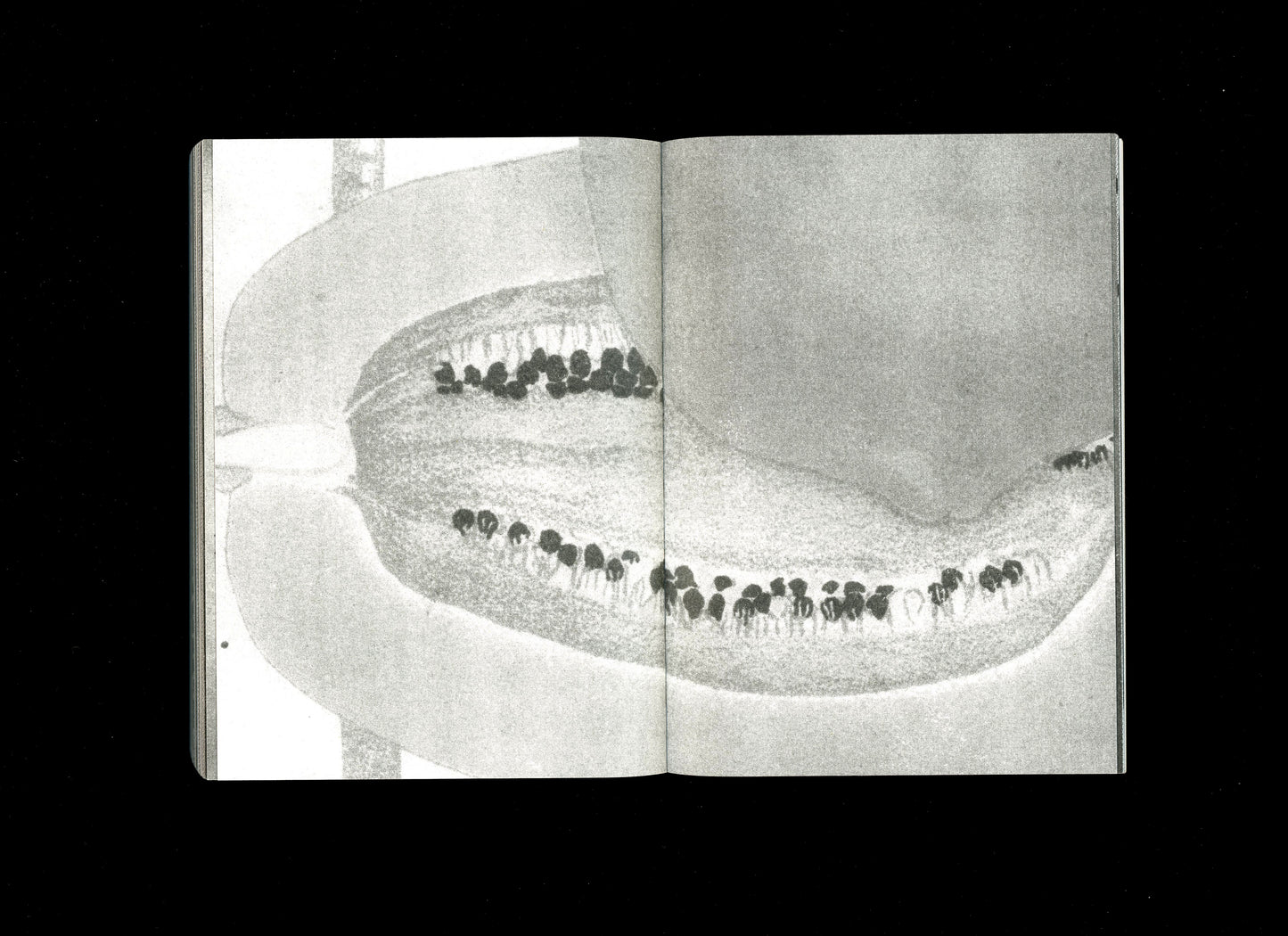The Image Book of Nomad Papaya
The Image Book of Nomad Papaya
Kenneth Ting-Yu Lin
Nomad Papaya Books
2024
9786269780419Softcover
15 x 10.7 x 4 cm
300 pages
Couldn't load pickup availability
In 2018, I bumped into a papaya tree on the street in Taipei. Its unique shape drew my attention: “What is this tree doing here?” It was standing straight up, growing higher over the fences, and the sun was passing through the buildings and penetrating the leaves. The green and yellow color of the leaves looked inexplicably energetic in the shimmering light. Suddenly I noticed that there are a lot of papaya trees near my neighbors, most of them grow alone in the middle of buildings or by the roadsides.They don’t have much agricultural value, but they appear in all corners of cities as a very natural, normal existence. I started to look for the traces of these papaya trees and their history by researching historical archives, taking photos, sketching and drawing, I started to realize the papaya trees had it’s own stories, deeply rooted in the colonized past. Looking at these papaya trees being a nomad in the city, I feel somehow accompanied when I get lost in identity questions. This book represents my perception of the place I call home.
Traditional Chinese, English
This book is divided into three chapters:
The first chapter, "The Long-Living Ancient Papaya," showcases images and records I discovered while researching the history of papaya trees in Taiwan.
The second chapter, "Nomad Papaya’s Journey" features papaya trees I photographed in various regions of Taiwan, coexisting with architecture and concrete structures.
The third chapter, "Nomad Papaya’s Streaming Movement and Self-Portrait with Blue and White Canvas Block ," includes a series of illustrations of a somewhat “chaotic” feeling. The blue and white canvas is a common industrial material in Taiwan, resistant to rain and wind, often used to cover building materials in the construction site. This section resembles a floating state as I shuttle between memories, images, and daily life.
